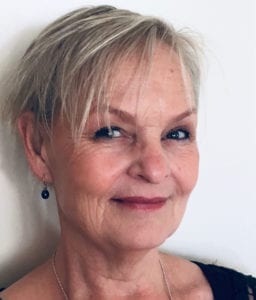The Complexities of Speaking Truth to Power: A Conversation with Dr Lindy Annakin
 “The arc of the moral universe is long, but it bends towards justice.” – Martin Luther King Jnr
“The arc of the moral universe is long, but it bends towards justice.” – Martin Luther King Jnr
Dr Lindy Annakin will be addressing many questions about advocacy, speaking out and listening to those who do so in her keynote presentation at our Platform 1225 Forum. She’s dedicated her life and her work to honesty and truth and finding ways through complex systems to enable those telling their stories to be heard. She’s committed herself to this process through her PhD on whistleblowing entitled: ‘In the Public Interest or Out of Desperation? The experience of Australian whistleblowers reporting to accountability agencies’. She’s further advanced her work through various roles in the government and non-government sector and as the lead writer of the out-of-home care chapter of the Final Report of the Royal Commission into Institutional Responses to Child Sexual Abuse. Dr Annakin is also the Coordinator of the Children in Care Collective.
This week, in conversation with Dr Annakin, we initially asked for her perspective on recent movements such as Me Too and Black Lives Matter when considering the complexities of speaking truth to power. “To me it feels a bit like the 1960s and 70s whereby we saw dramatic changes in activism, social attitudes and moral commitment. It’s an interesting reflection of that time of civil rights, anti-war and student protests. It is also about time for these issues. I think the demonstration of courage is emboldening for people raising issues. Someone showing moral courage also becomes a standard bearer for people generally when speaking to such important issues – just look at what Grace Tame has achieved.”
Dr Annakin recognises that there can be many hoops to jump through in the endeavour to be heard by systems, organisations or individuals with the power to act. She is clear that the culture within an organisation is the most fundamental concept when speaking about accountability. “Institutionalising integrity is the role of senior management. Those raising concerns will be heard and responded to if the integrity and culture of an organisation is right. If that isn’t in place across the organisation, they are unlikely to be heard” she said.
If such demonstrations aren’t in place? “Then they should run like the wind” she joked, albeit in earnest. Much because Dr Annakin recognises that when organisations aren’t inclined to operate in a culture of openness, transparency and responsiveness, seeking assistance beyond the organisation is often fraught, in that the impact of external accountability agencies is very limited. She quotes from her thesis: “Accountability is not only a means of control but has as its purpose and promise the development or enhancement of a sense of moral responsibility in autonomous individuals who recognise their own obligation to account for their actions.” She asserts that this, in part, is the incentive for organisations to operate with integrity. “In assuming that, you would think it was a fundamental tenant of running a good business. If you don’t have integrity in organisational structure and how you treat your people, it’s hard to know how you can be successful in your work with clients and partners.”
Dr Annakin notes that there are significant examples at the moment where there is a culture of silence and distraction. She further states that it may be more comfortable for large organisations and governments to think they can operate unilaterally without external oversight, including by the public. “There are certainly inclinations towards silence. It is convenient but in the end it’s destructive. It is also becoming harder to do things in secret.”
One of the key messages offered during this conversation is that if you are really listening you have an opportunity to rectify something that may be going wrong, and this is a valuable opportunity. Whilst some may endeavour to burn out the advocate by exhaustive processes aimed at silencing them, Dr Annakin is certain that the only way to address this dysfunction is organisational change from the top.
Those speaking truth to power may at times feel ignored or side-lined within complex systems and view their advocacy as being in vain. However, Dr Annakin believes that eventually toxicity becomes visible to the outside world. “There is a quote by Martin Luther King Jnr that I remind myself of often in order to stay optimistic: The arc of the moral universe is long, but it bends towards justice.”
When Dr Annakin speaks of the fundamental importance of culture, she notes both internal culture and the context in which it is operating. “In terms of trying to bring abuse of power to light, often people are looking for someone they can trust to report to, and most people want to trust the organisation. If that trust is breached they go looking elsewhere. If there is no one on the outside in the relevant context to assist, then that’s a huge breach of trust. For example, we heard during the Royal Commission of children who tried to speak to someone in the organisation and when unheard they ran away and went to the Police. When the police didn’t believe them, they were returned to the organisation where they experienced harm.” In such instances the culture of listening and responding by both the organisation and those associated is equally important.
She further explains: “Any child in out of home care needs to be able to talk to and trust the case worker and trust that the case worker is not enmeshed with the carer. Some people spoke about this to the Royal Commission. It’s both a question of individual moral commitment and also organisational culture.”
In reflecting upon what has actually changed in the process between the abuses the Royal Commission uncovered and our realities today, Dr Annakin says: “I think conditions are changing and one of the valuable offerings is enculturating child safe organisations. You make it safe for every child rather than jumping in when they’re already at risk. In doing so, the early intervention is a public health/population approach. Significant public attention also encourages cultural change in organisations.”
Child abuse and domestic and family violence are arguably the most pervasive abuses of power in our society. Yet across the nation and indeed the world, these abuses continue, in spite of significant endeavours in public education and a plethora of innovations to change this trajectory. Dr Annakin states that this ongoing reality is partly because we continue to conceptualise family life and parenting as private and we don’t see ourselves as having much of a say or stake in this.
We know child abuse is still occurring in every realm of our communities. Dr Annakin is optimistic that what is different since the Royal Commission is our response to children and young people when they speak out.
“I would hope the first response to a child disclosing abuse is to believe them. The Royal Commission was very clear that fundamentally children don’t lie and they try to tell you what is happening to them in whatever way they can. You need to listen to them and then assist them. For example if a child is behaving badly”, the proper question is to ask them why and what is happening for them. That’s especially so for those working in out of home care.”
At both a systems and individual level, Dr Annakin asserts that trust and trustworthiness is key. “Being able to trust enough to speak out and being met with trust when you do so. When someone discloses to you, you have an absolute responsibility to do something about it. Trust is necessary for both individuals and institutions.”
More information about Dr Annakin’s keynote presentation and Platform 1225 is here



